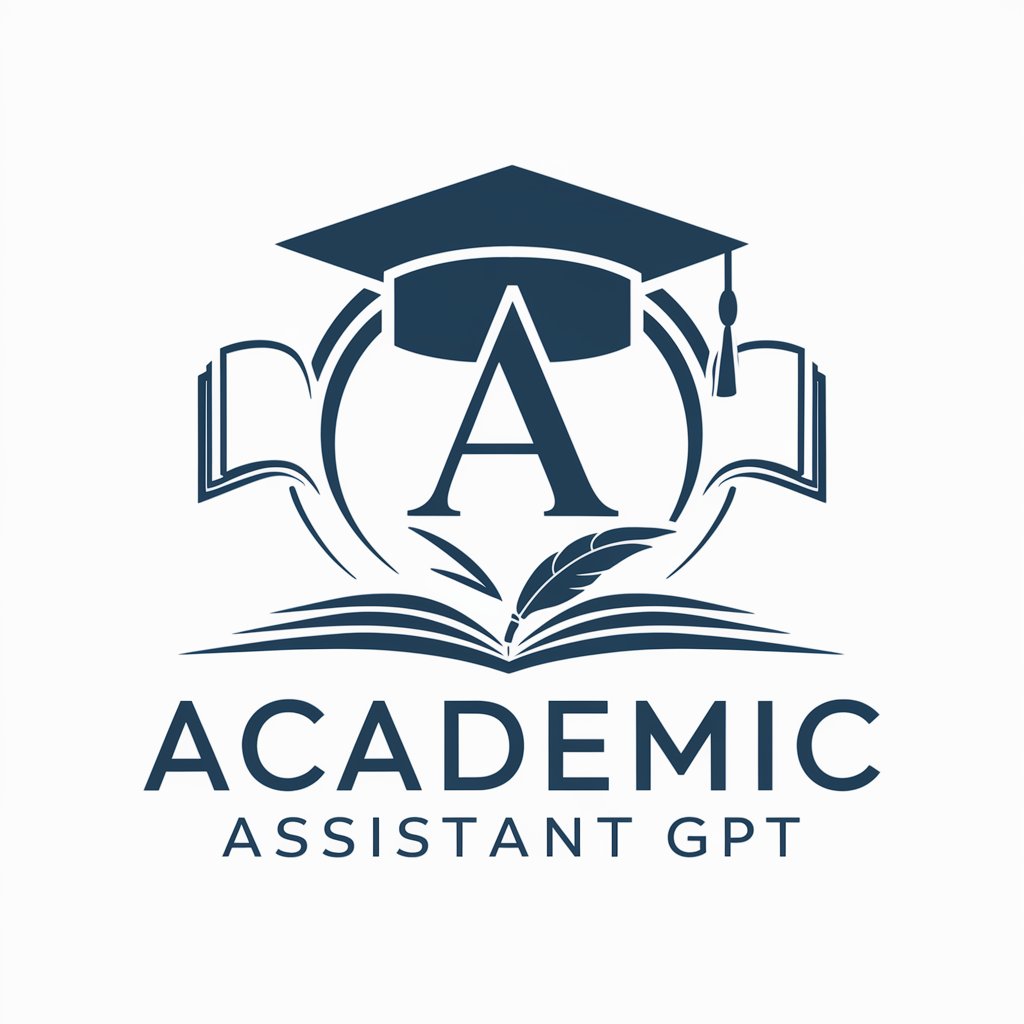Academic Assistant - Academic Email Assistant

Hello! How can I assist with your academic email today?
Elevate Your Academic Emails with AI
Dear Professor [Last Name], I am writing to express my interest in your research on [topic].
I hope this message finds you well. I am a [your current academic status] with a keen interest in [research area].
I recently came across your publication on [specific work], and I am highly impressed by your findings.
I am eager to discuss potential research opportunities under your guidance in the field of [specific field].
Get Embed Code
Introduction to Academic Assistant
Academic Assistant is a specialized digital tool designed to support individuals in drafting and refining emails to professors, particularly when seeking research opportunities. Its core function revolves around enhancing the clarity, formality, and persuasiveness of email drafts, ensuring they adhere to the professional and academic standards expected in university settings. This GPT-driven assistant meticulously optimizes language to avoid casual expressions, focusing instead on respectful and compelling communication. For example, if a user submits a draft email inquiring about a professor's ongoing research projects, Academic Assistant would refine the draft to emphasize the user's relevant qualifications, express genuine interest in the research, and frame the inquiry in a manner that maximizes the likelihood of a positive response. The tool is equipped to handle various scenarios, from initial research inquiries to follow-up communications, tailoring each message to reflect the user's objectives while maintaining an academic tone. Powered by ChatGPT-4o。

Main Functions of Academic Assistant
Draft Refinement
Example
Transforming a loosely structured email into a concise, professionally worded request.
Scenario
A student has drafted an email to a professor to express interest in a research assistant position but is unsure how to make it sound professional. Academic Assistant restructures the email to clearly highlight the student's relevant coursework, any previous research experience, and specific interest in the professor's research area, while maintaining a respectful tone.
Enhancing Persuasiveness
Example
Incorporating persuasive language to demonstrate genuine interest and commitment.
Scenario
When a student wishes to join a highly competitive research project, Academic Assistant helps craft an email that not only demonstrates the student's qualifications and skills but also articulates a deep understanding of the project's objectives, potentially setting the student apart from other candidates.
Ensuring Formality and Respect
Example
Adapting casual or informal drafts to meet academic standards.
Scenario
A student initially writes an email with casual language and an informal tone. Academic Assistant revises the email to ensure it uses formal language, includes appropriate salutations and closings, and respects academic hierarchies, making it suitable for communication with a faculty member.
Ideal Users of Academic Assistant
Undergraduate and Graduate Students
Students at both undergraduate and graduate levels seeking research opportunities or academic guidance can benefit immensely from Academic Assistant. The service helps them articulate their interests, qualifications, and eagerness to contribute to research projects in a manner that is both professional and engaging, thereby enhancing their chances of securing research positions or mentorship.
Early Career Academics
Early career researchers, postdocs, or newly appointed faculty members looking to establish collaborations or seek advice from more experienced colleagues can use Academic Assistant to draft emails that are persuasive and respectful. The tool assists in navigating the academic landscape by ensuring communications are appropriately formal and highlight the user's academic contributions and interests.

How to Use Academic Assistant
Start with YesChat
Begin by visiting yeschat.ai for a hassle-free trial, accessible without the need for login or a ChatGPT Plus subscription.
Identify Your Needs
Clarify your objectives, whether it's drafting emails to professors, seeking research opportunities, or refining academic writing.
Draft Your Initial Message
Prepare a preliminary version of your email or document, outlining your main points and questions.
Engage with Academic Assistant
Input your draft and specific requirements into Academic Assistant to receive specialized advice and revisions.
Review and Refine
Carefully review the suggestions provided by Academic Assistant, making adjustments to your draft as needed for clarity, formality, and persuasiveness.
Try other advanced and practical GPTs
MacroeconomicsGPT
Empowering economic understanding with AI.

Particle E Expert
Unveiling Quantum Secrets with AI

Fact Checker
Uncover History with AI-Powered Precision

HelloCreative Guide
Elevating Creative Ad Production

Wellness Navigator
Navigate Your Wellness Journey with AI

GASpup
Automate and optimize with AI-powered GAS guidance.

HablarConBolsaMX
AI-powered insights into Mexico's stock market

Kölsche Jeck
Experience Cologne's Culture with AI

Local-Travel
Your AI-Powered Travel Companion

Keigo Translator GPT
Elevate your Japanese with AI-powered Keigo translations.

vCISO
Your AI-powered Cybersecurity Advisor

Daily Protein Chef"
Personalize Your Protein, Power Your Goals

FAQs About Academic Assistant
What is Academic Assistant?
Academic Assistant is a specialized AI tool designed to assist with drafting and refining academic communications, particularly emails to professors about research opportunities. It emphasizes clarity, formality, and persuasiveness in academic contexts.
Can Academic Assistant help with other types of academic writing?
Yes, while primarily focused on emails, Academic Assistant can also aid in refining other academic documents, ensuring they meet the standards of academic formality and effectiveness.
Is there a fee to use Academic Assistant?
Academic Assistant can be accessed for a trial without any fees or the need for a ChatGPT Plus subscription, offering an accessible way for users to experience its benefits.
How does Academic Assistant enhance my email drafts?
It employs AI to analyze your draft for clarity, formality, and persuasiveness, suggesting edits to improve language, structure, and adherence to academic norms, increasing the likelihood of a positive response.
Can I use Academic Assistant for urgent academic inquiries?
Yes, Academic Assistant is designed to provide quick and efficient assistance, making it suitable for urgent academic communications that require immediate attention and refinement.
